
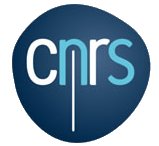


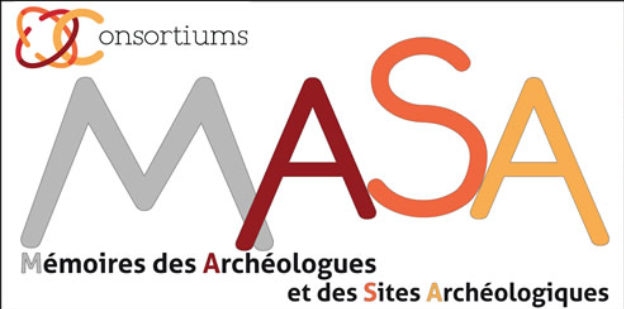
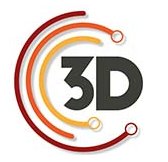
I. Dudek, J.Y. Blaise
Organisation d’école thématique interdisciplinaire CNRS 2006
OPUS 2006 - Opacités épistémiques: méthodes, solutions et obstacles pour monter en traçabilité)
Organisation of CNRS 2006 Interdisciplinary Thematic School Project
OPUS 2006 - Epistemic opacity: methods, solutions, and obstacles to improve traceability
196|222|225|226|147|163
porteur et responsable scientifique : I. Dudek
organisation : I. Dudek, J.Y. Blaise, A. Manuel, A. Pfitzmann
Instituts du CNRS concernés :
• CNRS Sciences Humaines et Sociales (INSHS),
• CNRS Écologie & Environnement (INEE),
• CNRS Biologie (INSB)
La manière dont les résultats scientifiques sont documentés, présentés et partagés est de plus en plus souvent au cœur de questionnements relevant de l'intégrité scientifique au sens large, dans différentes communautés ou disciplines - questionnements interrogeant autant des compétences et savoir-être individuels que des savoir-faire collectifs.
Notre objectif est de dépasser - ne serait-ce qu’à l’occasion de cette école - nos « silos » respectifs et de présenter et comparer la diversité des solutions existantes en matière de « traçabilité ». Faire cela collectivement - sous la forme d'une école thématique interdisciplinaire réunissant différentes communautés scientifiques - peut nous permettre de faire ce que nous ne pouvons pas faire séparément, en tant qu'individus ou collectifs scientifiques.
L'école s’adresse à tous les acteurs de la science investis ou souhaitant s’investir dans le renforcement de la traçabilité, ou qui veulent s'interroger sur sa traduction concrète dans leurs pratiques.
Public concerné
Agents du CNRS, personnels universitaires ou d'autres institutions du secteur public, doctorants, acteurs du secteur privé, ...
**************
project leader and scientific director : I. Dudek
organisation: I. Dudek, J.Y. Blaise, A. Manuel, A. Pfitzmann
CNRS institutes involved:
• CNRS Humanities and Social Sciences (INSHS),
• CNRS Ecology & Environment (INEE),
• CNRS Biology (INSB)
The way in which scientific results are documented, presented and shared is increasingly becoming a central issue in questions relating to scientific integrity in the broadest sense, in different communities and disciplines – questions that challenge individual skills and attitudes as well as collective expertise.
Our goal is to move beyond our respective ‘silos’ – if only for the duration of this school – and to present and compare the diversity of existing solutions in terms of ‘traceability’. Doing this collectively – in the form of an interdisciplinary thematic school bringing together different scientific communities – can enable us to do what we cannot do separately, as individuals or scientific collectives.
The school is aimed at all those involved in science who are committed to or wish to become involved in strengthening traceability, or who want to explore how this can be translated into practice in their work.
Target audience
CNRS agents, university staff or staff from other public sector institutions, doctoral students, private sector stakeholders, ...


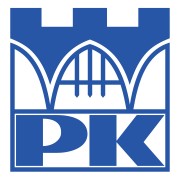

J.Y. Blaise, I. Dudek (scientific coordination for CNRS-MAP)
Call: A European Collaborative Cloud for Cultural Heritage – Innovative tools for high-value interactions with visitors and heritage objects
2025 - participation in:
• WP1 – scientific coordination and management
• WP3 – Scenarios and Itineraries Requirements and Criteria
• WP5 – Preliminary Survey: Methodology and tools


I. Dudek
I. Dudek (scientific coordination for CNRS-MAP)
Promotion of academic exchange and develop activities of mutual interest in accordance with their respective needs and objectives.
Relevant areas: exchange of students, exchange of faculty and staff, joint research activities, programs and publications, joint conferences, seminars, workshop and meetings.


J.Y. Blaise, I. Dudek, A. Manuel, A. Pamart , S. Farsy, F. Portet, D. Muti, L. Mattéi, H. Carrère, S. Bernard, …
role: cooperation preparation – structuring of the two teaching blocks planned for 2026,
nature of the activity: education and opportunity to monitor interdisciplinary work
• DSAA (Applied Arts degree) Spaces, Heritage and Territories in Transition
• DSAA (Applied Arts degree) Mediation and Interaction Design

I. Dudek, J.Y. Blaise
Preparation and publication (on the unit's website) of a compilation of documents used during workshops on deontology (café « Intégrité scientifique ») to underpin discussions on the principles of scientific integrity, ethics and good practice in scientific research.
• [Part 1: ‘“Tacit rules of science”']
• [Part 2: ‘Inappropriate research practices and professional misconduct'']
• [Part 3: ‘Deontology'']

J.Y. Blaise, I. Dudek, A. Manuel, A. Pamart, L. Bergerot, I. Fasse
Series of meetings between MAP members as part of the partnership with the Citadel of Marseille. Programmatic discussion on fieldwork, methodological exploration and coordination of our unit's various research approaches, structuring, sustainability and sharing of data and analyses produced in the course of actions carried out at the Citadel. Their objective is to analyse issues relating to the acquisition, documentation, analysis and use of data in the creation of new knowledge (theoretical and procedural), but also in the context of the support they can provide for corrective measures in the cultural field required by this subject.

I. Dudek, J.Y. Blaise
Project leader and scientific director : I. Dudek
Organizing committee: I. Dudek, J.Y. Blaise
The OPUS 2026 interdisciplinary thematic school project (Epistemic opacity: methods, solutions, and obstacles to improve traceability) has been prepared and submitted. It is organized around the issues raised by the MEMORIA project. The goal of this event is to foster porosity between disciplines and scientists, and a shared awareness of the contributions and limitations of methodological responses or tools from different circles.
– defining the program, identifying and contacting partners (scientific committee and speakers)


J.Y. Blaise, I. Dudek
A series of meetings between MAP and MuCEM staff as part of the establishment of a multi-faceted partnership:
• delineation of a digitization strategy to enable the cross-analysis of information contained in a collection of fifteen thousand handwritten records (which have never been digitized), created between 1943 and 1964, corresponding to collections of objects belonging to various society museums across France, most of which no longer exist today ("file X" MUCEM),
• methodological and technological exploration of solutions (citizen science vs. AI) for the transcription of textual handwritten data - analysis of different possibilities, including the potential support of artificial intelligence or solutions geared towards citizen science (TGIR Huma-Num's tacteo platform),
• analysis of the structure of the collection to enable the description and analysis of the degree of exhaustiveness and uncertainties in the MUCEM “file X” notices,
• participation in discussions around a VR experiment for the exhibition Reading the Sky - Under the Stars in the Mediterranean.


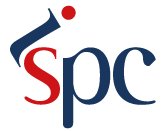

J.Y. Blaise (scientific coordination for CNRS-MAP), I. Dudek (participant)
scientific coordination (project preparation)
HORIZON-IA HORIZON Innovation Actions
Call: A European Collaborative Cloud for Cultural Heritage – Innovative tools for high-value interactions with visitors and heritage objects
HORIZON-CL2-2024-HERITAGE-ECCCH-01-04
Project coordinators Eva Pietroni and Angela Bellia, CNR ISPC
Title: PlaceMus XR - Digital journey across musical places in Europe and extended realities
Submitted : 22/01/2025
This research project focuses on creating digital applications that enable users to explore significant “places of music” across various European cities. The applications aim to provide an interwoven narrative, encompassing the musical event itself, its cultural context, and the physical location. This multi-layered storytelling approach will draw upon a diverse range of sources, including musical scores, chronicles, diaries, letters, philosophical treatises, and images.
Rounds of discussions and coordination of research lines to include in the PlaceMUS XR (european project proposal between UPR 2002 CNRS MAP/CNR (Consiglio Nazionale delle Ricerche) / Politechnika Krakowska (Cracow University of Technology).

I. Dudek
Deontology sessions are organised once a week. Their aim is to reflect together on the principles of scientific integrity, deontology and good practice in scientific research.
The venue for the session is the relaxation/coffee break room- to ensure the voluntary and informal nature of the meeting, but also to make the atmosphere more relaxed and encourage participants to speak up). The session is scheduled to last 15 minutes and take place at the end of the lunch break, so as not to interfere with the individual work of the workshop participants.

I. Dudek, J. Hannoun, J.Y. Blaise
Thematic workshops on good practice in research (scientific integrity, ethics, traceability, etc.) are organised as part of a cross-laboratory initiative to address these issues openly and move from good intentions - which are sometimes ad hoc - to systematic use of good practice.
The actions envisaged must be based on tangible solutions that can help us break through the ‘glass ceiling’ that often separates our desire to do so from our habits and limits -both organisational and individual).
These actions include - but are not limited to:
• identification, description and organisation of discussions around the elements influencing the implementation of good research practice (application of the FAIR principles in the production and publication of research results, clarification of the rules for assigning roles in the publication of scientific articles, etc.),
• an analysis of the problems associated with putting the principles of ‘slow science’ into practice (often described as major and equitable objectives, but which are not really respected in practice),
• drafting, validating and disseminating the unit’s internal charter of deontology and good research practices - ‘Guidelines for good scientific practices at UPR MAP’,
• publication on the unit’s website of referenced summary documents and important links on the subject of scientific integrity and good practice in scientific research,
• participation in training courses on these topics and individual self-training,
• establishing a direct partnership with the CNRS’s Mission d’Intégrité Scientifique (MIS), organising in-house workshops in collaboration with the MIS and disseminating information about available training courses to laboratory members,
• develop the means to promote scientific integrity, organise awareness-raising activities (informative, educational and fun, for example through games).

P. Bénistant (conception, implémentation), A. Manuel (conception, alimentation), J.Y Blaise, (conception, alimentation), A. Néroulidis (alimentation), I. Dudek (alimentation), A. Pfitzmann (alimentation), P. Beauchet (alimentation), J. Hannoun (alimentation)
Creation in 2024 of an intranet for the newly-created UPR MAP (created on January 1st, 2024).
The intranet is deliberately designed as a simple, autonomous storage and exchange space, and not as a conventional web portal, or one based on a commercial solution. It comprises some fifteen directories in which unit members can find the essential information and documents relating to team life and internal organizational issues.
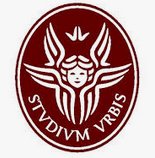
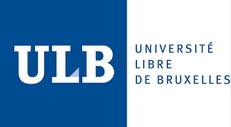

J.Y. Blaise, I. Dudek (participants)
Call: HORIZON-CL2-2024-HERITAGE-01 (Research and innovation on cultural heritage and CCIs - 2024)
Topic: HORIZON-CL2-2024-HERITAGE-01-01
Type of Action: HORIZON-IA (HORIZON Innovation Actions)
Proposal number: 101178781
Proposal acronym: FUNDAMENTA EUROPAE
Coordinator : Francesco Romeo, Università degli Studi di Roma (La Sapienza)
Partner : David Lo Buglio, Université libre de Bruxelles (ULB)

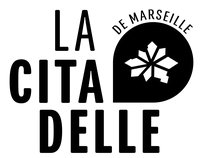
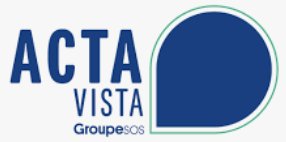

I. Fasse, J.Y. Blaise, I. Dudek, L. Bergerot, F. Bertrand, A. Pamart
Organisation of the second summer digital workshop for students and professionals interested in architectural and historical heritage. The programme includes practical workshops and theoretical presentations (i.e. techniques and know-how for heritage restoration, digital data acquisition techniques, data analysis and processing, valorisation of results).
The event was initiated by MAP (UPR 2002 CNRS MAP), in collaboration with the Citadelle de Marseille and ACTA VISTA (Groupe SOS), with the kind participation of the heritage architect responsible for the site, and in conjunction with courses at the Marseille School of Architecture.

UMR CNRS/MC 3495 MAP-Gamsau
organisation and animation - I. Dudek
Organisation and direction of a series of weekly meetings to familiarise MAP-Gamsau team members with the method of documenting research results within MEMORIA IS (review of objectives and ethical issues, presentation of the system’s functionalities, extension of the system tests, elicitation and modelling of knowledge, etc.).

I. Dudek
PCI Archaeology is a community of recommenders, playing the role of associate editors, who recommend unpublished articles based on peer reviews to make them complete, reliable and citable articles, without the need for publication in ‘traditional’ journals. Evaluation and recommendation by PCI Archaeology are free of charge.
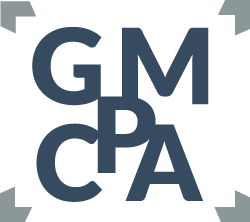
I. Dudek
Revue d'Archéométrie, publishes articles, in French or English, on any original and unpublished research dealing with the application of various scientific techniques (physical, chemical, mathematical, earth and environmental sciences, and natural and life sciences) to the resolution of archaeological issues or the development of new methods. Articles may deal with methodologies and their limitations, fundamental scientific research or specialised techniques, so long as their archaeological justification is clearly explained.

I. Dudek
Assessment off needs and perspectives of deployment and articulation of the MEMORIA IS in the framework of the n-Dame_Heritage project:
• organisation and animation of collective training meetings and discussion sessions
• instruction of the an engineer in charge of the digital preservation of data (data collection, description of processes in MEMORIA IS),
• Development strategy for the adaptation and use of the system for members of the Notre-Dame de Paris construction site.


JY Blaise, I.Dudek, A. Néroulidis
The aim of the project was to identify, list and describe in a formal and systematic way the processes by which buildings or parts of buildings are being reappropriated in the form of participatory solutions - both to enhance and share the initiatives of social players and to provide material for scientific analysis. The project's main expected outcome was methodological: to have developed and evaluated a systematic method for identifying, modelling, documenting and synthesising the processes of transformation and reinvestment of small-scale built heritage.

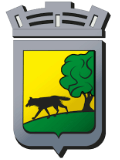

J.Y. Blaise, I. Dudek, A. Néroulidis, F. Thavot
Setting up and organizing a special day dedicated to presentation of the scientific results of the ANR SESAMES project to the broad public - "Visites insolites" and "Fête de la science " in the rural town of Puyloubier.
The event’s preparation lead to the production of a series of specific outputs: six posters linked to online content, three original 'serious games' more or less resembling puzzles or tangrams (assembly games), a VR headset tour of the interiors of the chapels studied, and online products for the general public (panoramas with sound tracks and a convolutor).
The event was organised in collaboration with the town of Puyloubier and as part of the ANR SAPS-CSTI programme (DIRCOM CNRS, ANR SAPS-CSTI-Générique 18-19).




I. Fasse, J.Y. Blaise, I. Dudek, L. Bergerot, F. Bertrand, A. Néroulidis, A. Pamart
Design and implementation of a summer digital workshop aimed at students interested in architectural and historical heritage, at different levels of study and from a variety of educational backgrounds. The programme includes practical workshops and theoretical presentations (i.e. heritage restoration techniques and know-how, digital data acquisition techniques, data analysis and processing, making the most of the results).
The event was initiated by MAP-Gamsau (UMR 3495 CNRS/MC), in collaboration with the Citadelle de Marseille and ACTA VISTA (Groupe SOS), with the kind participation of the heritage architect responsible for the site, and in conjunction with courses at the Marseille School of Architecture.



J.Y. Blaise (porteur du projet), I. Dudek (co-porteuse)
Setting up and drafting the "MUSE - Immersive environment and reappropriable multi-sensory content as support for the spatio-acoustic analysis of heritage architecture, mediation and digital creation" project in response to the ANR SAPS-RA-AI 2023 call for projects, in collaboration with UMR 7061 PRISM and the Citadelle of Marseille (societal partner).
The MUSE project proposes to use the "fort d'entrecasteaux" as a meeting point for multidisciplinary scientific approaches (experimental and historical sciences) and creative approaches. It thereby questions the production of data, its documentation and its re-use as a driving force for thought (objective, cultural, emotional) about the building.


J.Y. Blaise, I. Dudek, P. Benistant, A. Néroulidis
Recruitment procedure in the context of the CNRS Socio-economic partnerships developer programme.
Title: Digital applications for heritage sciences
Preparing the application, defining the profile, selection procedure, recruitment.
The mission consists of co-developing and deploying digital applications targeting the field of cultural industries (and eventually that of lifelong learning) and relying on the scientific and technological advances made within the MAP laboratory (Models and Simulations for Architecture and Heritage).
It is part of the CNRS's "Ingénieurs-transfert" programme, which aims to develop research partnerships between its research units and economic players, by strengthening the capacity of the former to formalise research offers negotiated and conducted in collaboration with the latter.



A series of meetings between the staff of MAP-GAMSAU and of the Citadelle de Marseille (a non-profit-making organisation which, from December 2021, will manage the Entrecasteaux fort blocking the port of Marseille its the south side) as part of a multi-faceted partnership:
- preparation of a "summer workshop" using the architecture of the fort (2023), and more broadly, setting up lifelong learning training modules,
- research projects in and around "science and society" themes,
- setting up cultural and scientific mediation activities,
- The development of research or research-action programmes based on the issues of studying, conserving, reappropriating and promoting the monument.
People present :
Permanent members of both organisations, ACTA VISTA representative, Heritage architect in charge of the monument.


J.Y. Blaise, I. Dudek
Preparation of a work-study contract MAP (CNRS)/ CFA Epure, IUP MIAGE Aix-Marseille - Master in Computer Methods Applied to Business Management (MIAGE), Extended Information Systems Engineering (ISIe).
Theme: support for the development and management of a major IT project for the laboratory, the MEMORIA web IS designed by the host unit's researchers as a practical solution for formalising and intersubjective describing research flux.


J.Y. Blaise, I. Dudek, P. Bénistant
Setting up of a work-study contract MAP (CNRS)/CERI (University of Avignon) Master 1&2 Computer Science. Training supervisor Pascal Bénistant (Head of IT at MAP).
Theme: support for the implementation of the MAP laboratory's open science strategy (covering all research products, from raw data to applications developed by the teams).
Selection of applications May-June 2022.

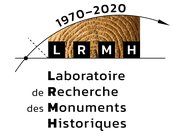
J.Y. Blaise (P1), I. Dudek (P1, P6)
July 2022
Position 1
Two years (renewable up to four years) researcher position in Digital Humanities
Knowledge formalisation, data curation and analysis in cultural heritage
Position 6
Two-years (renewable up to 4 years) study engineer position on digital curation of heritage science data
Data collection, Data curation, FAIR principles, heritage science
Mars 2023 > Position 6
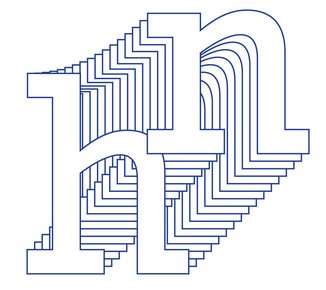
I. Dudek
A French-language journal published in open access and dedicated to the scholarly uses of digital technology in the humanities and social sciences. Emanating from the French-speaking association Humanistica, it is also supported by the Alliance of Digital Humanities Organizations and the Institut des sciences humaines et sociales du CNRS.
e-ISSN 2736-2337
The project document explains a significant institutional evolution of the UMR CNRS/MC 3495 MAP. It defines the motives and long-term objectives of this evolution, includes a SWOT based on the collective work of the team, ten sections defining the scientific priorities and operating strategies it has chosen, and details in the appendix individual roles, transversal means, partnerships, etc.
The drafting work included the integration of content produced during the residential workshops organised from 12 to 14 October 2022 in Robion, and individual contributions from team members: I. Dudek, P. Bénistant, L. De Luca, I. Fasse, A. Pamart, L. Bergerot, A. Néroulidis, A. Pfitzmann.
Sessions for collective validation of the contents organised over the period November-December 2022, project transmitted on the 9th of December, 2022.
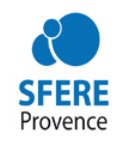


Project coordinated by Anne Demeester (UR 4671 ADEF - EAST), and supported by the Structure Fédérative d'Études et de Recherches en Éducation de Provence (SFERE-Provence, FED4238), in response to the A*MIDEX white call.
WP entitled "environment and architectural spaces as influencing factors on the well-being and health of children: experiments in the existing context of a nursery school", under the responsibility of I. Fasse.
In this framework, participation in the definition of the concrete content of the WP and the investments of the MAP-Gamsau team (project finally postponed).


I. Fasse, F. Bertrand, J.Y. Blaise, I. Dudek, A. Neroulidis, A. Pamart
This seminar is part of an initiative by ENSA. Marseille to programme a research seminar each year the organisation of which relies on one of the school’s three laboratories - each laboratory having to "invent" a different meeting formula. The aim of such a seminar is to bring together different actors within and beyond the school around 'research' activities in a broad sense.
As organisers we chose not to focus the event on our laboratory’s own work, but rather to talk about 'heritage' from the point of view of diversity: what the term covers in terms of material or immaterial realities, professional practices, citizen commitments, decision-making, challenges and specific technical skills, etc.
The organisational principle chosen was to propose thematic sessions dedicated to different heritage science related issues; that now make scientific territories, as well as to discuss the impact of digital technology on the study, enhancement and transmission of heritage facts and data. Four sessions were proposed with each time a central intervention followed by short testimonies or experiences that could feed a debate. The members of the MAP laboratory intervened along the way, providing short testimonies, as if to say "this is how a laboratory such as ours can get involved in the heritage issue, from the research angle to the pedagogical/research angle".
The seminar was an opportunity to put forward missions, experiences and issues that go beyond the academic circle and thus to contribute to identifying complementary approaches and existing or future bridges.


I. Dudek, J.Y. Blaise, M. Rabefandroana, P. Bénistant
The development of the MEMORIA 'sandbox' aims to enliven a community of scientific actors likely to get involved in the exploitation of the MEMORIA IS. It offers them a space of discovery of the system in which they can familiarise themselves with both the basic concepts of the IS and its highly visual interface.
The MEMORIA 'sandbox' allows potential users of the MEMORIA IS to try out the system and to explore the notions of output, composition, publication, processes and activities, or expertise. The other functionalities of the IS are disabled.
It is designed as a "hands on" platform that should help users to get a better idea of the principles of the MEMORIA IS and of its interface design. Please note that the sandbox is NOT a workspace. Its content is likely to be reset at the end of each month.
(launched on 20/06/2022)

UMR CNRS/MC 3495 MAP-Gamsau
organisation / animation - I. Dudek
Organisation and conduct of a series of meetings to familiarise MAP-Gamsau team members with the method of documenting research results within MEMORIA IS (reminder of the objectives and ethical issues, presentation of the system's functionalities, extension of the system tests, etc.).


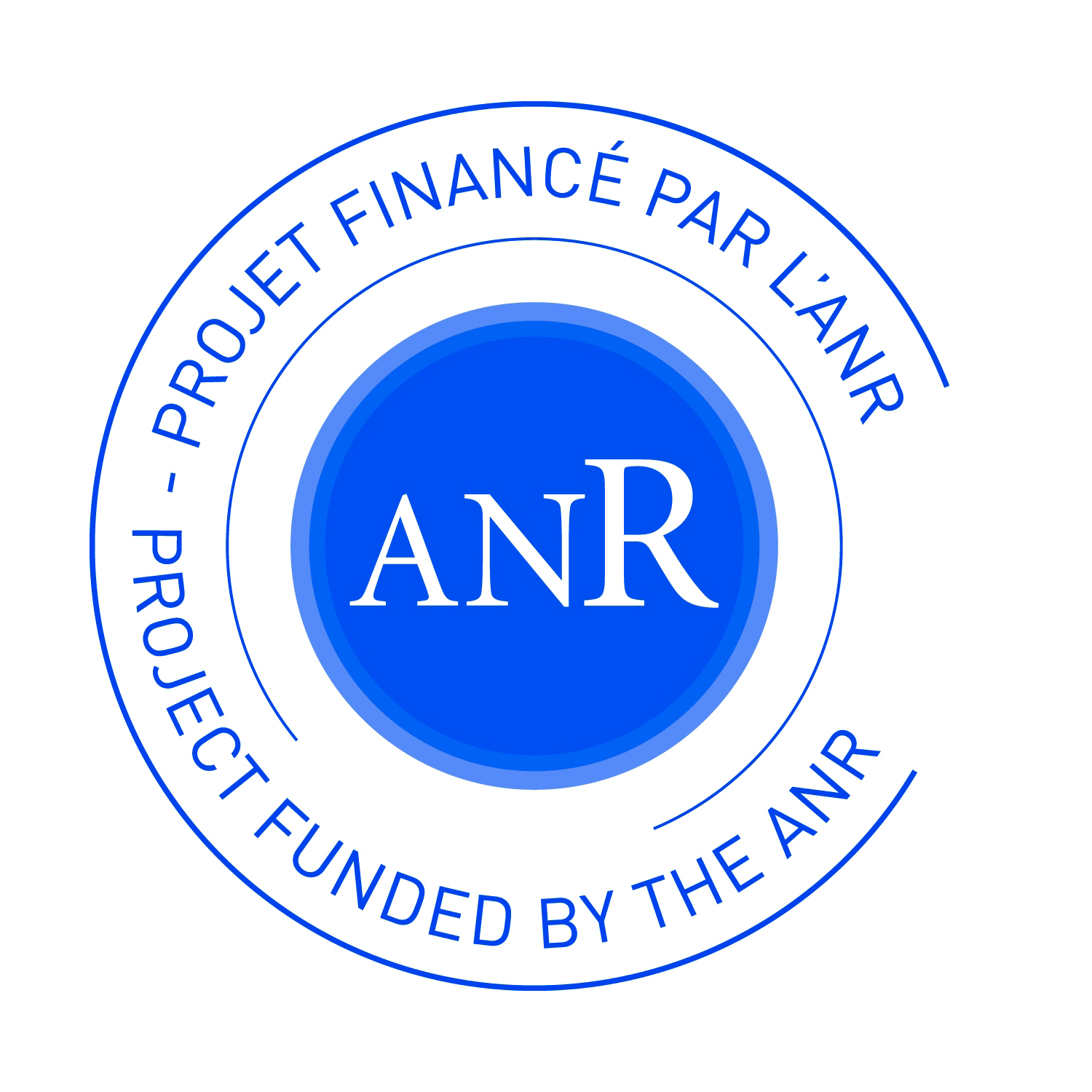
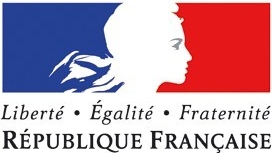
I. Dudek
Support of the team in the framework of two incentive projects, MEMORIA (MC/DREST funding) and SESAMES (ANR funding)
IT, statistics and scientific computing
Tasks and objectives: finalisation of IT implementation of an online Information System: development of an Information System for the Web, development of indexing and query interfaces; user assistance, production and deployment of interactive visualisations.
I. Dudek
(N° certificate 41102907800d8455)
I. Dudek
four-month internship (Master 2 level), UMR 3495 CNRS/MC MAP
MEMORIA research program



I. Dudek (scientifique coordination for CNRS-MAP) J.Y. Blaise (participant)
Horizon 2020
proARCHAEOTECTURE - project preparation
Proposal number: 810922
THE PAST IN THE FUTURE: DEVELOPMENT OF ACADEMIC EXCELLENCE IN ARCHAEOLOGY, ARCHITECTURE AND COMPUTER SCIENCES TO ADVANCE PUBLIC ENGAGEMENT IN CULTURAL HERITAGE PROTECTION



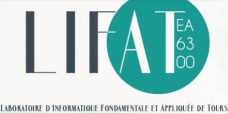
J.Y. Blaise (leader), I. Dudek (participant)
ANR Generic call for proposals 2017
SESAMES - project preparation
Spatialisation Et Sémantisation d’Artefacts patrimoniaux Multi-Echelle par annotation 3D, contenus hétérogènes et Sonification / Spatialisation and sensemaking for multi-granular heritage artefacts through 3D annotations, heterogeneous content, and sonification.